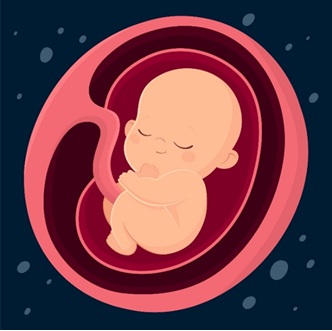It is Time That the UK Had a National Conversation About the Rights of the Unborn
by Irfan Chowdhury
Troubling Legislation
The United Kingom (UK) is currently considering legislation that will decriminalise abortion up to birth; this is Clause 191 of the Crime and Policing Bill, which states:
Clause 191 would disapply the existing criminal law on abortion in England and Wales for women acting in relation to their own pregnancies at any gestation. It would mean women who have an abortion outside of the existing legal framework would not be subject to investigation, arrest, prosecution or imprisonment.
Crossbench peer Lord Alton has pointed out: “The unintended consequences of this abortion up to birth amendment would mean that rather than protecting women, they would be placed at greater risk — to say nothing of the implications for unborn babies, even so very late in pregnancy.” He has further observed: “This radical and disturbing proposal would endanger women by removing any legal deterrent against performing dangerous late-term abortions at home and likely lead to an increase in viable babies’ lives being ended.”
An argument that some people make is that the only reason that a woman would possibly get an abortion after 24 weeks – the current legal time limit in the UK – is out of absolute medical necessity, and hence it is an exceedingly rare occurrence. However, it is incorrect to make a blanket assertion that this is the only reason that women will get abortions at such a late stage – women have had late-term abortions for reasons that have nothing to do with medical necessity.
One example is that of Carla Foster, who self-induced an abortion at 32-34 weeks gestation during the COVID lockdown in 2020 – the reason being that she had become pregnant, and did not want to carry the baby to term after moving back in with her previously estranged long-term partner. She was sentenced to 28 months’ imprisonment in 2023 (this was subsequently reduced to a 14 month suspended sentence); the Judge noted that she was “not suffering from any serious mental illness at the time of this offence” (although she was experiencing “emotional turmoil”).
In 2012, Sarah Catt was sentenced to an eight-year prison term for self-inducing an abortion at 39 weeks gestation; her reason was that she believed the baby she was carrying was the result of a 7-year affair she had been having. The Judge told her in his sentencing remarks that she had “robbed an apparently healthy child, vulnerable and defenceless, of the life which he was about to commence”.
There is moreover a risk that malevolent actors will exploit libertarian legislation to satisfy their perversions. An example is that of r/PlannedAbortions – a now defunct Reddit community (it was eventually banned by moderators for its content) that was made up of men and women who bragged about arranging late-term abortions, including up to birth, because they have a self-described “abortion fetish”; the splash page called on users to “take power over life and death”. Screenshots of some of the posts are available here, while this video evidences the same disturbing fetish; it shows two female podcast hosts – Lauryn Petrie and Adrienne Kuss – discussing how much they get aroused by abortion and potentially producing OnlyFans pornography around it.
Feminist author Katha Pollitt has explicitly denied that abortion is necessarily a morally fraught decision for women, saying:
My aim is to turn the abortion paradigm on its head. We talk about abortion as a bad thing — even pro-choicers fall into this language when we say it’s an agonizing decision, the hardest decision a woman ever makes. Really? A woman who had no thought of becoming a mother before she got accidentally pregnant and is in no position to care for a children [sic] now suddenly thinks, I should have a baby? I argue that legal abortion is a social good.
In Pollitt’s view, abortion is unequivocally a good thing, with no moral complexity. Those who share her view – such as some of the women who are part of the #ShoutYourAbortion social media movement – do not believe abortions should only be carried out for reasons of medical necessity, or indeed that abortions should be a rare occurrence.
In the UK, it is already legal for women to get abortions after 24 weeks in the exceptional cases where this is deemed to be medically necessary – this new legislation will make it so that women will face no legal repercussions for getting abortions after the 24-week time limit for any reason whatsoever.
Image by freepik.
It should also be noted that the 24-week time limit that currently exists in the UK is exceptionally liberal by European standards – as Lord Alton notes, it is “double the average upper time limit for abortion among countries in the European Union, which is 12 weeks.” Babies can in some cases survive outside of the womb at 22 weeks, meaning that under current UK law, viable babies can be aborted. Furthermore, mothers can start to feel their babies moving at approximately 16 weeks gestation, and babies play by doing somersaults at approximately 20 weeks gestation.
Under current UK law, a baby that moves around inside the womb and plays, and that may even be viable outside of the womb, can be aborted. According to the Royal College of Obstetricians and Gynaecologists, evidence shows that babies start to experience pain after 24 weeks gestation; which means that Clause 191 will decriminalise the infliction of pain on babies during the abortion procedure. This is a deeply morally problematic situation.
Broader Moral Questions
In addition, the slaughter that Israel has unleashed in Gaza over the past two years – backed by Western countries including the UK and the US – has thrown into sharp focus the vulnerability of unborn babies and the question of their rights. One emblematic video that emerged over the past two years shows the aftermath of an Israeli airstrike, wherein a pregnant Palestinian mother was brutally killed, along with her unborn baby, whose bloodied remains are held in the hands of a Palestinian medic.
The instinctive reaction that I have while watching this – and this is the reaction of many who have watched this – is that a double murder has taken place; the mother was murdered, and so was her unborn baby. The pro-abortion position would be that only one murder has taken place – that of the mother. The unborn baby would be entirely disregarded as a being deserving of rights in and of itself. This seems to me morally untenable, when faced with the reality of that tiny body.
Furthermore, the UN has documented how Israel destroyed the al-Basma IVF clinic in Gaza City in December 2023, using a tank shell; 4,000 embryos were destroyed in that single strike, without any military targets nearby. The UN concluded that this attack was a “genocidal act”, which carries the implication that even embryos have rights as (potential) human beings. What is so obscene about this attack is that so many parents will have to deal with the unbearable agony and grief of that loss, and that on a fundamental level, life itself has been attacked; those thousands of futures, with many moments and memories waiting to be created, were extinguished in the blink of an eye.
When examining these cases with a clear moral focus, with empathy and compassion for the most vulnerable, it becomes disingenuous to entirely disregard the lives of unborn babies – whether being considered for abortion or as victims of militarism.
The UK must not go down this dark path of decriminalising abortion up to birth – indeed, as a country, we must have a much more honest and serious conversation about the rights of the unborn more generally. Every year, viable babies are aborted while at the same time, couples grieve pregnancy loss and go through multiple cycles of IVF; how can both situations coexist iThe Referendum on Abortion in Ireland: The Violation of Rights / Maria Horann a coherent moral framework? This is cognitive dissonance at a societal level – and must be resolved.
==================
For posts on similar topics, see:
The Referendum on Abortion in Ireland: The Violation of Rights
Sinn Féin and the New Legacy of Violence
Bigotry against Babies with Down Syndrome: International Experiences
For a page on our Referendums site, which includes a video, see:
Disability Rights and Late-Term Abortions


Leave a Reply